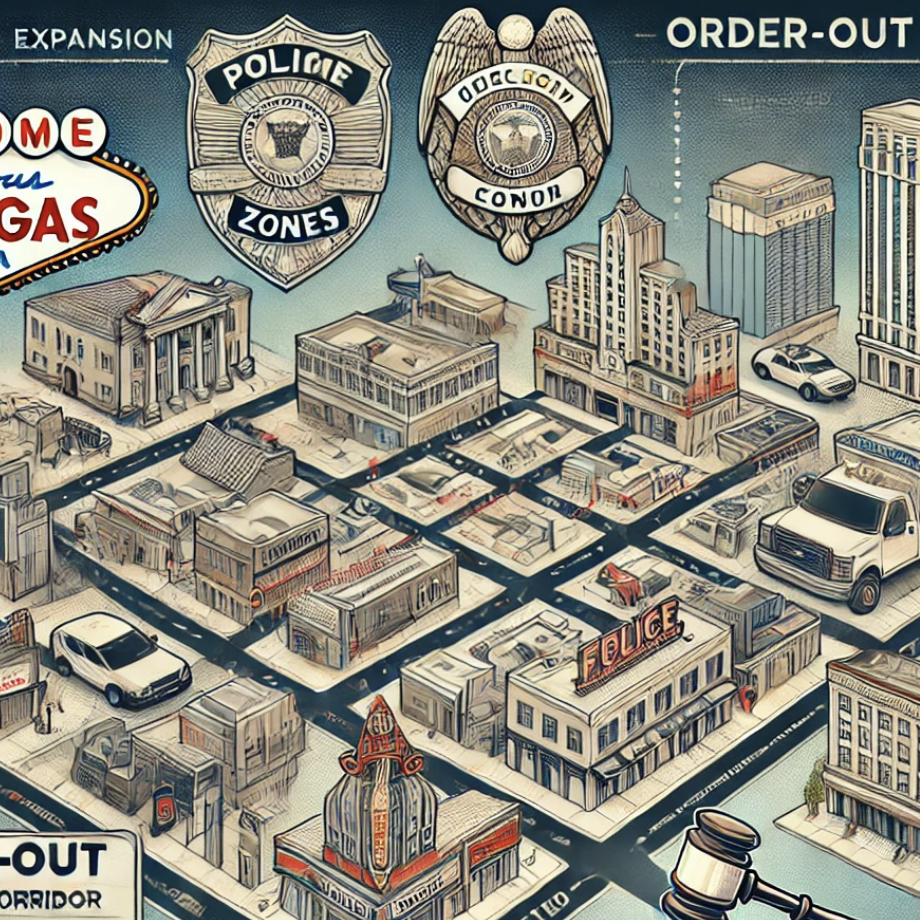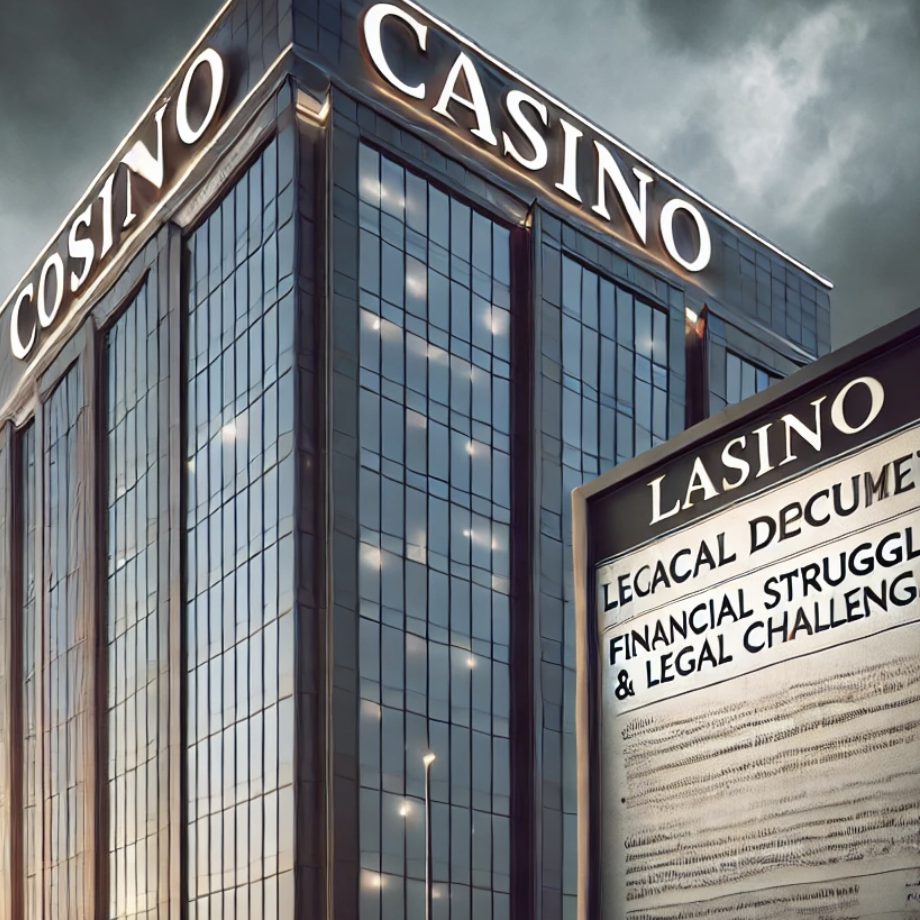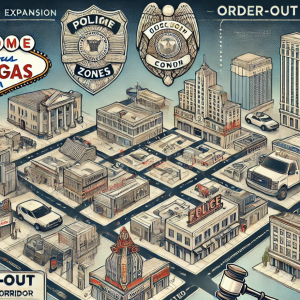What constitutes the Order-Out Corridor?
The order-out corridor, first established in November of the previous year, included just Fremont Street and the vicinity of The Strat hotel and casino. This location was designated as a high-crime zone, visited by both visitors and residents. The premise of the corridor is straightforward: anyone convicted of misdemeanours, such as trespassing or disturbing the peace, may face temporary exclusion from certain zones. Unauthorised reentry results in immediate arrest without the need for further proof of misconduct.
The objective was to provide a more secure environment for visitors and locals by prohibiting repeat criminals from accessing designated areas, so discouraging criminal behaviour. The recent extension has increased the order-out corridor by 29 acres around the Plaza Hotel and Main Street Station, so broadening the scope of this contentious regulation.

Mechanism of the Policy
Judges has the authority to prohibit those guilty of certain misdemeanours from the specified order-out zones. These misdemeanours include many offences prevalent in heavily trafficked tourist locales, including trespassing, hindering law enforcement, furnishing false information, battery, and disturbing the peace.
For instance, if an individual is adjudicated for instigating a public disturbance in the Fremont Street vicinity, a court may impose a prohibition on their entry to that area for a duration of up to one year. If that individual is subsequently discovered inside the area without authorisation, they may be apprehended immediately, irrespective of whether they are perpetrating a new offence at that moment.
Law enforcement have the capacity to execute arrests according to judicial mandates, making the policy an effective instrument in preventing habitual criminals from accessing regions vital to the city’s economy. The expansion of the order-out corridor indicates that municipal authorities see this strategy as beneficial in lowering crime, however not without criticism.
The Effects of the Policy
Municipal authorities assert that the legislation has effectively reduced criminal activity in downtown Las Vegas. In July, authorities said that 246 individuals had been mandated to refrain from entering the downtown area in the first eight months after the implementation of the rule. Among these people, almost 80 were incarcerated for contravening the order, however just nine recidivated post-incarceration.
Advocates of the program, like as Las Vegas Mayor Carolyn Goodman, contend that it equips police enforcement with an essential instrument for ensuring safety in the city’s most at-risk regions. “This is indeed a crucial initial measure for us, aimed solely at safeguarding everyone, including law enforcement,” Mayor Goodman said at the initial City Council meeting when the policy was originally presented.
The mayor and other municipal authorities assert that the strategy is intended to be preventive rather than punitive, aiming to diminish the probability of crime and recidivism in densely populated regions.
Reproach from Civil Liberties Proponents
Nonetheless, not all individuals are persuaded that the order-out corridor is the appropriate option. The American Civil Liberties Union (ACLU) of Nevada has consistently opposed the program and is anticipated to contest the expansion in court. The ACLU contends that the regulation violates the fundamental rights of people, especially those experiencing homelessness.
The ACLU is primarily concerned that excluding individuals from public spaces, particularly traditional public forums such as Fremont Street, infringes upon their First Amendment rights, regardless of prior criminal convictions. The ACLU had same worries when Clark County implemented a comparable order-out corridor around the Las Vegas Strip two years before.
Last June, the ACLU submitted a combined amicus brief asserting that the order prohibiting Ackeem Ramsay from the Strip for pandering was unlawful. At the time, Ramsay was on supervised probation and prohibited from accessing the Strip as a condition of his sentence. The ACLU said that this prohibition infringed upon his freedom to enter public areas, a privilege protected by the First Amendment.
Unforeseen Outcomes for the Homeless Population
The ACLU highlights that order-out zones disproportionately impact homeless persons, many of whom lack alternate locations to reside. Individuals experiencing homelessness are more prone to arrest for misdemeanours, such as trespassing. If they are subsequently prohibited from public places, they face a substantial danger of re-arrest just for attempting to subsist in such locations.
The ACLU has shown that over fifty percent of those apprehended under the order-out rule on the Las Vegas Strip were homeless. The organisation contends that measures like as the order-out corridor criminalise homelessness instead of tackling its underlying causes, including insufficient affordable homes and inadequate mental health care.
The Prospects of the Order-Out Corridor
Notwithstanding the objections from civil liberties organisations, Las Vegas authorities are proceeding with the extension of the order-out corridor, certain that it will persist in diminishing crime in the city’s most frequented locales. The enlargement of the area around the Plaza Hotel and Main Street Station is anticipated to begin immediately, with law enforcement initiating the enforcement of the expanded perimeters.
Although advocates of the policy contend that it effectively ensures safety in downtown Las Vegas, it is uncertain if the ACLU’s legal objections will result in modifications to the enforcement of the order-out corridor.
A Delicate Equilibrium: Security against Civil Liberties
The discourse around Las Vegas’ order-out corridor fundamentally illustrates a larger conflict between public safety and individual liberties. City authorities contend that rules such as the order-out corridor are essential for safeguarding visitors, residents, and law enforcement personnel against habitual criminals perpetrating small offences in the city’s most frequented locales. Conversely, organisations such as the ACLU saw the policy as an infringement on civil freedoms, especially concerning marginalised groups like the homeless.
As the legal dispute about the order-out corridor continues, all parties must contend with achieving an appropriate equilibrium between ensuring public safety and safeguarding the rights of all persons, irrespective of their socioeconomic level or criminal background.
















